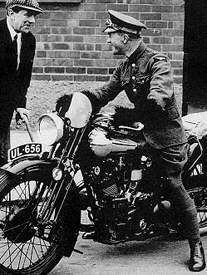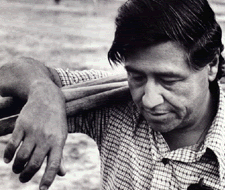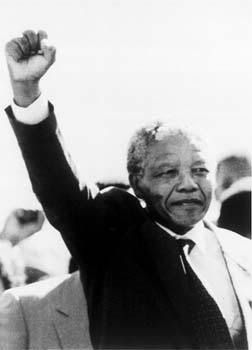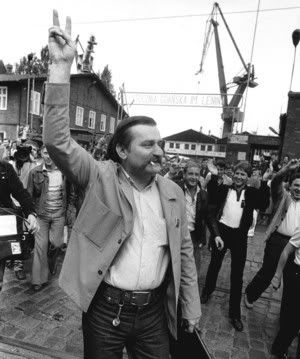It is snowing gently here in Portland. Millions of flakes are floating slowly out of a pewter Sunday morning sky. Of course each of them is unique. Our parents teach us that is so, almost from the moment we can comprehend. But frankly, no matter how unique it may be, not one of those flakes is significant. Only when they come in the millions of millions and all at once is the world forced to take notice. Usually, the same is true of people. No matter how "unique" you might feel yourself to be, really you don't matter. But some matter, more than most.
 I recently finished reading a couple of books about one man who mattered more than most: The Seven Pillars of Wisdom, T.E. Lawrence's account of the Arab Revolt against Turkey during the first World War and A Prince of Our Disorder, a biography of Lawrence by John E. Mack. Both would "make serious inroads on a lifetime," as G.B. Shaw said. Lawrence's work is an epic, probably wholly unique in English literature. Had he survived the attack of the whale and been of a literary mind, Ahab may have written something similar and of similar length. Mack's is an exacting investigation of the life of a wholly unique individual.
I recently finished reading a couple of books about one man who mattered more than most: The Seven Pillars of Wisdom, T.E. Lawrence's account of the Arab Revolt against Turkey during the first World War and A Prince of Our Disorder, a biography of Lawrence by John E. Mack. Both would "make serious inroads on a lifetime," as G.B. Shaw said. Lawrence's work is an epic, probably wholly unique in English literature. Had he survived the attack of the whale and been of a literary mind, Ahab may have written something similar and of similar length. Mack's is an exacting investigation of the life of a wholly unique individual.Both books reaffirm heroism as a concept. I offer them here to help hold the line against the incredible proliferation of "heroes" in our world since 9/11. Firefighter? Hero. Policeman? Hero. Soldier? Hero. Automatically and without question. Fighting cancer? Hero. A child fighting cancer? Double-plus hero. We're so deep in everyday "heroes," we hardly know what a real hero is anymore.
There's a narrow ledge to walk here. Perhaps I've already plunged off it. But I dare to assert that simply serving in uniform, even serving under fire -- even being wounded by the enemy -- does not a hero make. Let me be very clear: I am in no way denigrating or devaluing the service of those both brave and unlucky to come home wounded, or not to come home at all. Their willingness or code-fulfillment is the personification of honor. Rather, I am trying to recoup the title of "Hero" from the merely honorable or brave or stalwart or exceptional.
Of course this is all part of our failure of language. As media become faster and our notice has become a dearer commodity, language has taken shortcuts to our attention. Steadily we have stripped words of their individual meaning and promulgated a vocabulary of mere synonyms, where everything means roughly the same thing, and therefore means hardly anything at all. I'd like to rescue "hero" from the pile.
Men need heroes in order to transcend the limitations and disappointments they experience in their everyday lives. Heroes embody ideals and values shared in the culture, ready examples with whom the rest of us may identify. But the creation of heroes depends upon the compliance of history, the coming together of special events and situations with unusual men or women who take hold of these circumstances, force upon them their own actions and personalities, and transform them along the lines of their own dreams. Mack, p. 217Heroes are "everyday" in the sense that we need to see ourselves in them. But they are also something far more. Like Ahab, they possess the "global brain." There is something of the ubermensch about them. And they act grandly, to take hold of the events of an age and shape them. This is the model that Bush self-elects. This is the Rumsfeldian ideal. Of course, both men fell far short in reality--both innately and through performance. This is the language their idolaters invoke, however. Unfortunately for us (and for them), the epic hero is impotent against the modern world.
The last time this kind of a hero made sense was in the ante-bellum Union. After the Civil War, the epic heroic ideal began to lose currency in America. In WWI this hero died in France. And in Vietnam, this hero began to die in Dixie. It is a lingering death, but death it remains. What Charles Frazier termed "the metal face of the age" is too impersonal, too indiscriminate for such parade-ground heroes. What we learned at Antietam and Ypres and Hiroshima is that simple bigness, bare valor and feat-of-arms is the province of comic books when it comes to heroes.
If people bring so much courage into this world the world has to kill them to break them, so of course it kills them. The world breaks every one and afterward many are strong at the broken places. But those that will not break it kills. It kills the very good and the very gentle and the very brave impartially. If you are none of those you can be sure it will kill you too but there will be no special hurry. A Farewell to Arms.Death is coming. Fatalism like this isn't just for the battlefield anymore, as terrorism proves. Our modern world, the world we've made, requires something more from a hero than "heroics." The events of that September caused people to cast about quickly for heroes--prominent people to reflect us back to us but magnified and triumphant. So we quickly cast ourselves some heroes from old, 19th-century molds. But they were empty vessels. Not only were they not up to the challenges of the age, but they lacked some deeply essential qualities. If the battlefield is my block, then everyone on it is heroic -- but obviously not. Take events in your hands, yes. Rise above the run of people, yes. But there must be something deeper, more empathic, more aware.
One little-known member of the Arab Bureau said of Lawrence, 'What he hid, I believe, and still believe, was a tender reverence for human life which his duty as a soldier compelled him to violate, and so he was always stressed by inner conflict.' But it is this conflict about human life, the inability to justify killing, the self-consciousness, guilt and exaggerated responsibility-taking that make Lawrence, a valued example for the twelfth century, a contemporary hero. Mack, p. 218This deep ambivalence to the theater of heroism and abiding empathy for people is the ingredient missing in our current talk of heroes. True greatness, today, must transcend inward not outward. This is what I find so thoroughly lacking in our leaders, and missing from the commercial heroes of the nightly news. A hero, a 21st century hero, must marry the broad vision to human love.
Take that definition of "hero" and you quickly wipe out the run-of-the-mill "everyday heroes." They aren't. They're necessary and thank goodness we have them. They save lives and they make an important difference. They can be wonderful examples to emulate. They're worth holding in the spotlight for our admiration and praise. But they aren't heroes. Boy, could we use a hero right about now.
Perhaps this standard is impossibly high. Perhaps we've even outstripped heroes of Lawrence's type. In his essay, Our Leadership Vacuum, which I panned, perhaps what Edgar Allen Beem is actually wincing over is the age of the antihero. We can know everything. We know Lawrence suffered from deep depression after the war and that his sexuality was stunted. But we learn this years later. Today we find out about one candidate's unpaid parking tickets from 20 years ago. No one can fly too high. We know everything; perhaps we've lost something. I blasted Beem because I believe that in our world, incremental change is still change. Perhaps because we've confined ourselves mostly to the margins, true heroic opportunity is rare. But people still need heroes.
In his essay 'T.E. Lawrence: the Problem of Heroism,' Irving Howe has written: 'The hero as he appears in the tangle of modern life is a man struggling with a vision he can neither realize nor abandon, 'a man with a load on his mind.'' Howe also points out: 'What finally draws one to Lawrence, making him seem not merely an exceptional figure, but a representative man of our century, is his courage and vulnerability in bearing the burden of consciousness.' Lawrence is, in Howe's phrase, 'a prince of our disorder' (which will recall the words of Lunt's Bedouin host: 'Of all the men I have ever met he was the greatest Prince'). Mack, p.218Truthfully, we do have heroes. And we have them human: Cesar Chavez. Nelson Mandela. Lech Walesa. Corazon Aquino. It seems to me that these people come closer to 'bearing the burden of consciousness' because the choices they made steered away from the barrel of a gun, in spite of the deep temptation the gun must have held for them. When you hear about a hero on TeeVee, think of these people instead and reserve the word for people like them. People who, more than being physically courageous, take the world in hand and try to stand between it and those who fall behind. People whose deep sense of personal responsibility makes every bomb and bullet of their own a wound to themselves. That is why they matter more than most.
"I am not a very tractable person or much of a hero-worshipper, but I could have followed Lawrence over the edge of the world. I loved him for himself, and also because there seemed to be reborn in him all the lost friends of my youth." John Buchan




2 comments:
Keep on growing! A lot of thoughts bouncing around in that head of yours...gotta love that!
Your intellegence and passion are awe inspiring. I am picking this post to comment on, though I have read a great deal of them. This one above all reflect a piece of my world and my own inner struggle. So I say Bravo to your blog. I certainly don't agree with all of your points but I do appreciate their value and enrichment to me. I hope to read anc omment more. PSDM
Post a Comment